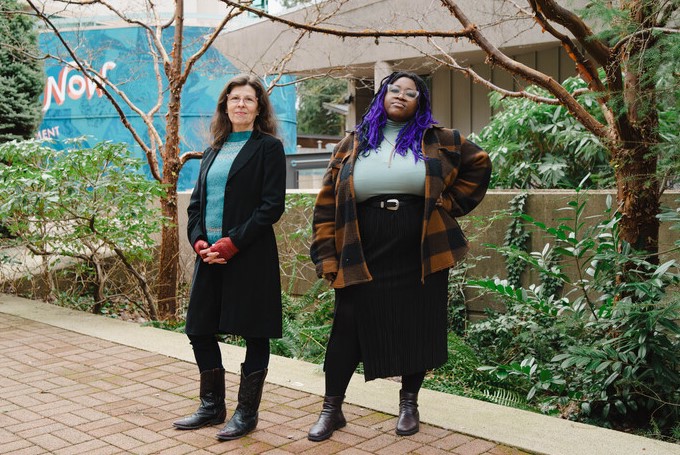How courageous conversations can help bring back civil discourse
With polarization on the rise, educators identify ways to help foster civil discourse

Does it feel like we are a people divided? From COVID restrictions, mask-wearing, vaccination, racial justice, cultural appropriation, pipelines, to homelessness, it can feel like strong opinions are becoming louder at a time when there are fewer opportunities to dialogue with those who hold other beliefs.
Capilano University instructor Diana Twiss and student research assistant Jane Agyeman together with co-researchers from Vancouver Community College and the Mir Centre for Peace at Selkirk College, are participating in a three-year, federally funded study that aims to create tools and strategies for people who want to hold space for “courageous dialogues” about topics that are becoming increasingly difficult to discuss in constructive ways.
Courageous Dialogues: Building Capacity to Transcend Polarization in Civil Society was one of 28 successful proposals chosen from 115 submissions in 2021 and will receive $360,000 from the Community Colleges Social Innovation Fund via the Social Sciences Humanities Research Council of Canada (SSHRC).
“I love the team approach to learning offered by this project and the opportunity to participate in something that is going to make our communities healthier, more vibrant and more dynamic,” said Diana Twiss, research team member and coordinator for Community Development and Outreach at CapU.
The spark that started this project came out of an observation and a question by CapU Dean of Business and Professional Studies Dennis Silvestrone. In 2019, Silvestrone reflected on the increasing lack of civil discourse he was seeing in news stories, and wondered if there was a place for post-secondary educators to play in helping to restore it. Silvestrone, who at the time, was president of the Continuing Education and Training Association of B.C., shared the idea with colleagues and discovered others shared this vision to be part of a movement to bridge societal divides.
The research collective has partnered with a variety of non-profit organizations including New Stories, Decoda Literacy Solutions, Columbia Basin Alliance for Literacy and the Continuing Education and Training Association of BC. These organizations will serve as research sites providing information about how polarization affects their organization, programs and communities, as well as insight on where to find opportunities to overcome polarization. Partners will also be able to apply research findings and skills to staff training, professional development, public outreach and community programming.
Expected outcomes include increased awareness of social divisions, heightened motivation to take action and enhanced skills for addressing polarization within organizations and social groups. Building on the core goals, the team also hopes to see the development of safer spaces for Black, Indigenous and People of Colour (BIPOC) to give voice to their experiences; increased appreciation of diverse identities, needs, and perspectives; and increased openness to EDI efforts within communities to ultimately create greater conflict resilience.
“We are going to suggest possible strategies, tools and interventions that can move people before they become polarized. I find that very exciting,” said Twiss
Submitted by: Communications
